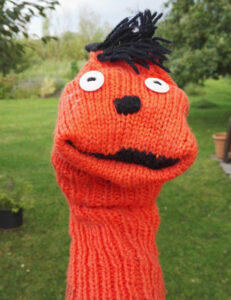7 Teaching Short
Drama & Expressive Arts for Education, Assessment and Enjoyment
By Robert Power
 As a longtime ESL/EAL Instructor, I’ve used my passion for drama and music to teach English from the very first month of my career. Then, one day several years ago as a LINC teacher, something new walked onto the stage: Portfolio Based Language Assessment (PBLA). My fellow teachers and I felt like we weren’t going to be able to have much fun in class anymore with the demand to frequently assess students doing real-world tasks, using very specific criteria. Once the initial sense of pending doom wore off, I knew I had to continue being a drama queen, but make it work for my manager, the CLBs, and the government too! Surprisingly, assessment and task-based learning made things more fun for my learners and I, and really challenged our creativity!
As a longtime ESL/EAL Instructor, I’ve used my passion for drama and music to teach English from the very first month of my career. Then, one day several years ago as a LINC teacher, something new walked onto the stage: Portfolio Based Language Assessment (PBLA). My fellow teachers and I felt like we weren’t going to be able to have much fun in class anymore with the demand to frequently assess students doing real-world tasks, using very specific criteria. Once the initial sense of pending doom wore off, I knew I had to continue being a drama queen, but make it work for my manager, the CLBs, and the government too! Surprisingly, assessment and task-based learning made things more fun for my learners and I, and really challenged our creativity!
I have used classic or modern day playscripts, stories, and role playing activities as a way to take pressure off of the students and have them play a fun, sometimes familiar somebody, but not themselves. I learned that we could in fact imitate real world tasks, and it could help students when it came to actually doing them.
Partaking in mock court trials has helped my intermediate and advanced level students learn about Canadian law while having the opportunity to read a playscript about interesting characters in exxaggerated real world scenarios, learn new vocabulary and expressions, state their case, enunciate, and express conflict and emotions.

Puppetry has helped my beginner and low intermediate level learners to introduce “themselves” (their puppet) and “another” ( their puppeteer), as well as talk about themselves and others, such as what they do for a living. When we were studying the job unit, students made their puppets from scratch, and designed each one to represent a different job title. Using an old sock from home and craft supplies, they were able to follow and give instructions on doing such a project, which I turned into a speaking, listening and writing/reproducing information acitivity. As the puppet was their creation, they developed an attachment to it and genuinely wanted to express themselves in English while moving its mouth. This activity took the shape of basic conversation and sometimes, full puppet shows.
I’ve given assessments for most of the theatre-based exercises I’ve done, like radio and classic plays. My students have performed their skits for their classmates, and invited other classes to watch and listen too. They’ve made up their own listening assessments for their peers or lower level listeners. This familiarized my students with the criteria teachers use for assessment. Aside from speaking and listening, journal writing has been a regular activity/ assessment in my class in which students write a journal entry as the character they play or choose from a story. In similar fashion, they acquire email writing skills by writing emails to other characters in their play, or to doctors, teachers, employers, etc, depending on the circumstances of the character.
Furthermore, singing and lyrical study have been a favourite exercise to practice the vocabulary, pronunciation, intonation and structure needed to complete many daily tasks. As LINC teachers with so much focus on the 4 skills, we often allow the PBLA to do 2 things 1) suck the fun and humour out our classroom 2) cause us to forget how important vocabulary, grammar, pronunciation and the rythm of language are too.
Over the years, I have taught using unique learning activities to suit my own character and make my teaching of this challenging language more joyful and authentic. At the same time, I’ve worked to cater to the wide range of beautiful characters I’ve had in the classroom, and always hoped for my activities to be low stakes. If we’re not having fun, or enjoying something, or if we feel a sense of dread, we likely won’t want to continue as a learner or as a teacher!
The two most amazing improvements I’ve witnessed from doing drama in class is greater fluency and confidence. For those students that have been shy, reluctant, or new, I’ve had them play small parts or get involved in costume design, sets, props, or background music, . When it has come time to assess them for speaking, they introduce themselves and their role in the play or skit. Students that were shy at one time or wanted to remain behind the scenes have often surprised me by requesting a larger speaking role the next time we do classroom theatre.
Finally, I get quite involved in the dramatic or artistic activities I assign my students. Research reflects that teacher participation is extremely powerful in ensuring a safe environment for students as well as in communicating the value of the program and education. Also, it benefits us know what it feels like to participate in these activities that we get our learners to do so that we can fine-tune them to suit different levels of comfort, learning styles, and needs. Sometimes we don’t remember what it’s like to be on the spot for a few minutes
every day, because we are standing up at the front of class too much of the time dictating what to do next. If we want to make class truly interactive and know how they are feeling, we have to get involved sometimes and stand right there “on stage” with them, playing roles, learning lines, writing our own scripts, and even making mistakes. Drama is a great way to practice being human and express oneself in a safe space.
I continue with my love of literacy and expressive arts now in a podcast for incarcerated students and their teachers on Canada’s voicEd radio. This is an example of some of my current work as a representative for Pro Literacy, New Readers Press. I share my own stories and opinions and ask the students to share theirs, verbally or in writing, about articles in a weekly world newspaper we publish. I recently interviewed the programmer at William Head Institution in Victoria on the theatre program they run for the residents there to foster confidence and creativity. Watching one of their annual performances in their prison gymnasium deepened my value for drama as a way to educate.
